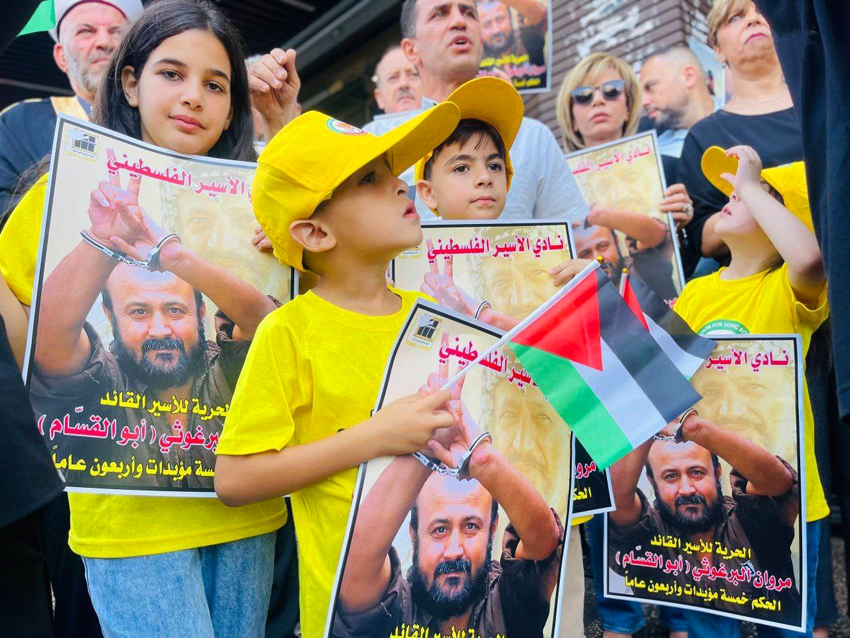
THE wife of Fatah leader Marwan Barghouti, Fadwa Barghouti, has called on US President Donald Trump to work towards the release of her husband, after Trump stated that he ‘would make a decision’ regarding the matter.
In a statement to Time magazine, Fadwa Barghouti said: ‘Mr President, there is a true partner waiting for you – a person who can help achieve the shared dream of a just and lasting peace in the region.
‘For the freedom of the Palestinian people and the peace of future generations, please help release Marwan Barghouti.’
Trump made his remarks in an interview with Time, when asked whether he would support Barghouti’s release, who has long been regarded by Palestinians and some diplomats as a potential leader.
He said: ‘I am literally facing this question about 15 minutes before your call. That was the question. That was my question for today. So I will make a decision.’
Marwan Barghouti, 66, has been imprisoned in Israeli jails since 2002 and was sentenced in 2004 to five life terms.
Hamas leader and chief negotiator Khalil al-Hayya said on Saturday that repeated remarks by US officials signal the end of the war on the Gaza Strip, stressing that the Israeli occupation has failed to achieve its objectives after two years of conflict.
Al-Hayya affirmed that his Movement would not give the Israeli regime any pretext to resume its genocidal war on Gaza, adding that the Movement handed over 20 Israeli captives within 72 hours of the ceasefire along with 17 corpses, amid ongoing efforts to locate and recover the remaining bodies in other sites.
Al-Hayya also said that Hamas would hand over ‘all administrative control of the Gaza Strip to an interim committee, including security’.
On the issue of disarmament, al-Hayya said that the resistance’s ‘weapons are linked to the existence of occupation and aggression, and if the occupation ends, the weapons will return to the state’.
‘The issue is still being discussed with factions and mediators, and the agreement is still in its infancy. We have no reservations about the management of the Gaza Strip by any national figure residing in Gaza.’
- Yahya al-Sarraj, the mayor of Gaza City, says the Israeli restrictions on heavy vehicles entering Gaza are inhibiting the ability of the city’s municipal government to engage in clearance and reconstruction work.
In a news conference yesterday, al-Sarraj said the city’s government needed at least 250 heavy vehicles and 1,000 tonnes of cement to build wells and maintain the water network.
- The United Nations Relief and Works Agency for Palestine Refugees (UNRWA) confirmed an urgent and pressing need to bring shelter materials and winter supplies into the Gaza Strip.
In a post on X on Saturday, UNRWA said there is a growing need to provide shelter and warmth to the residents of the Strip as winter approaches.
It added that those resources, allocated for displaced families, are currently stored in UNRWA warehouses in Jordan and Egypt but have been prevented from entering Gaza.